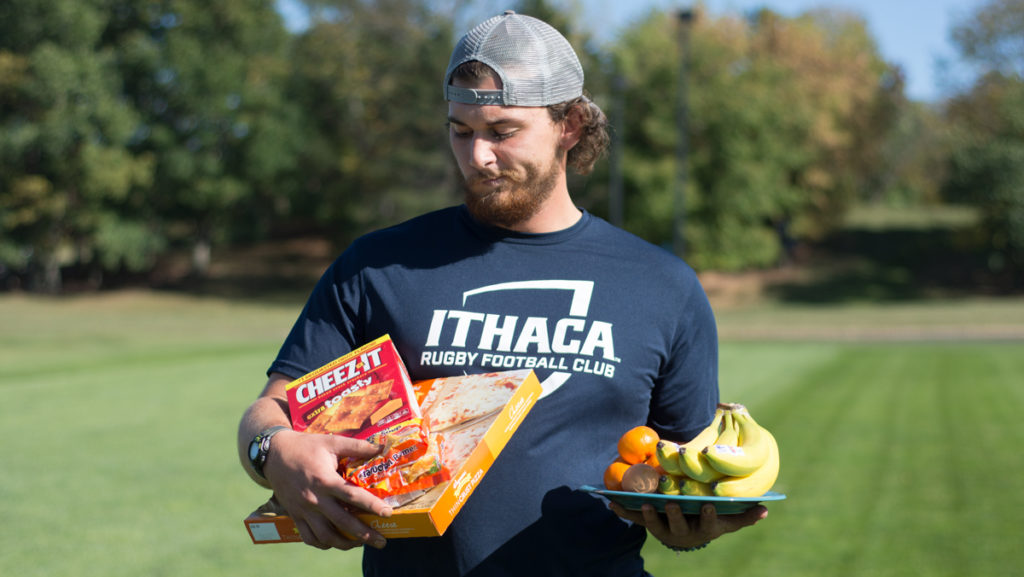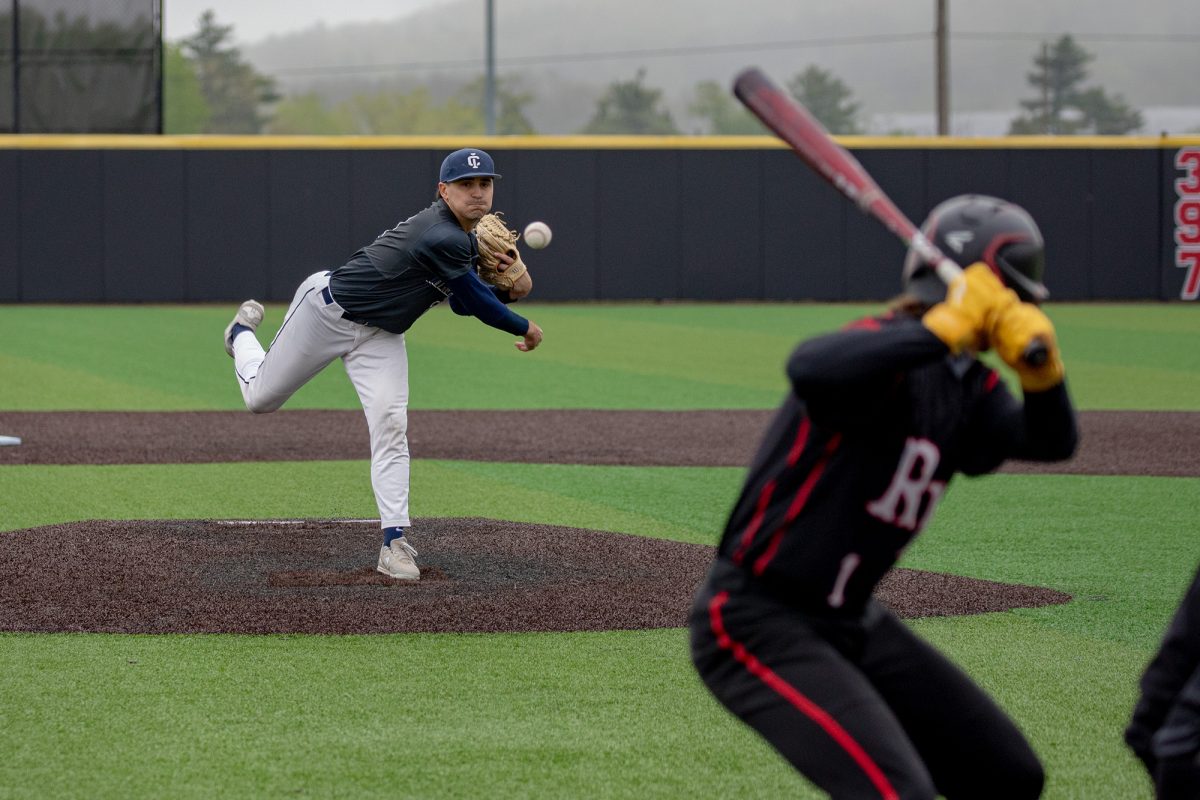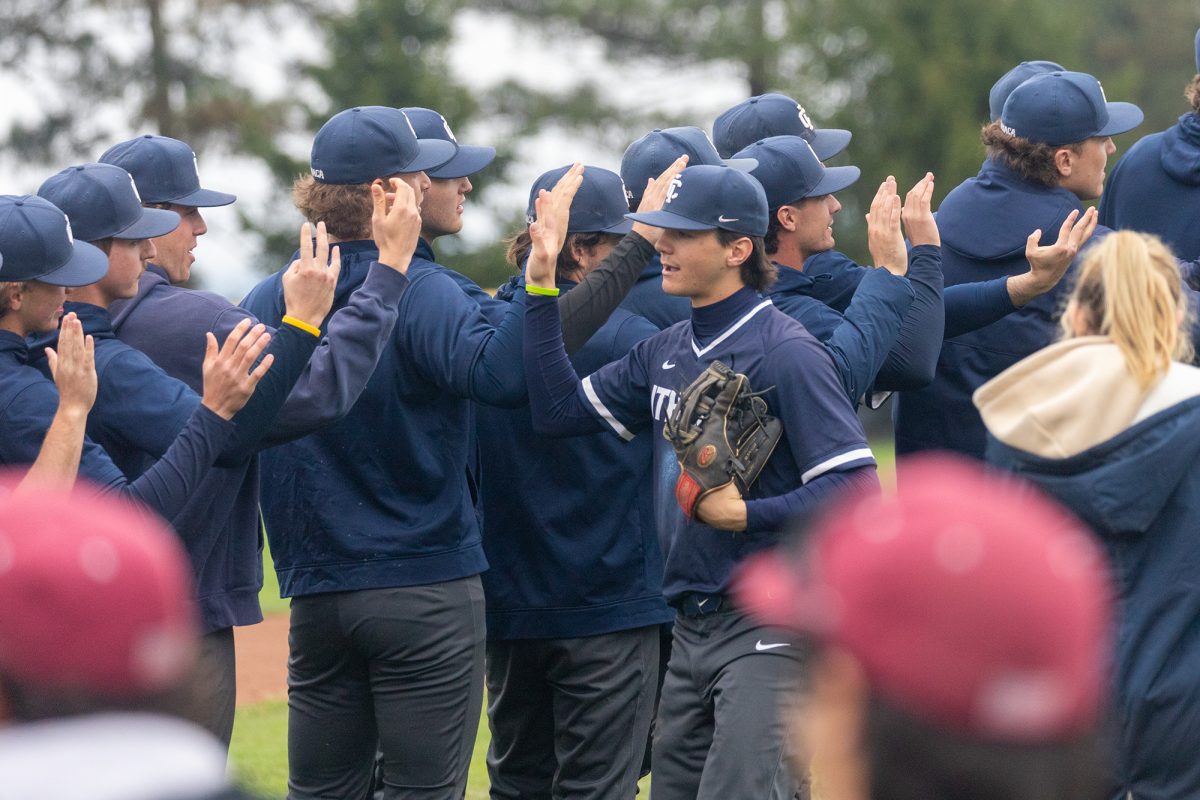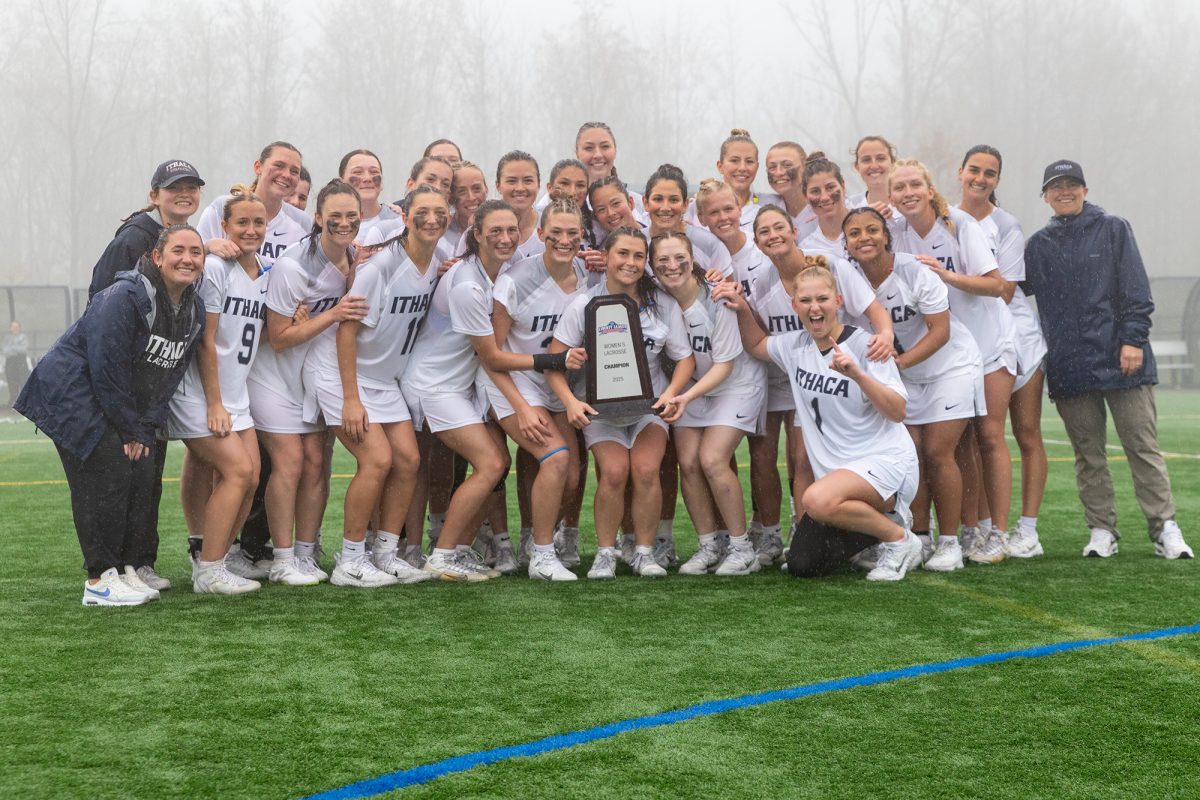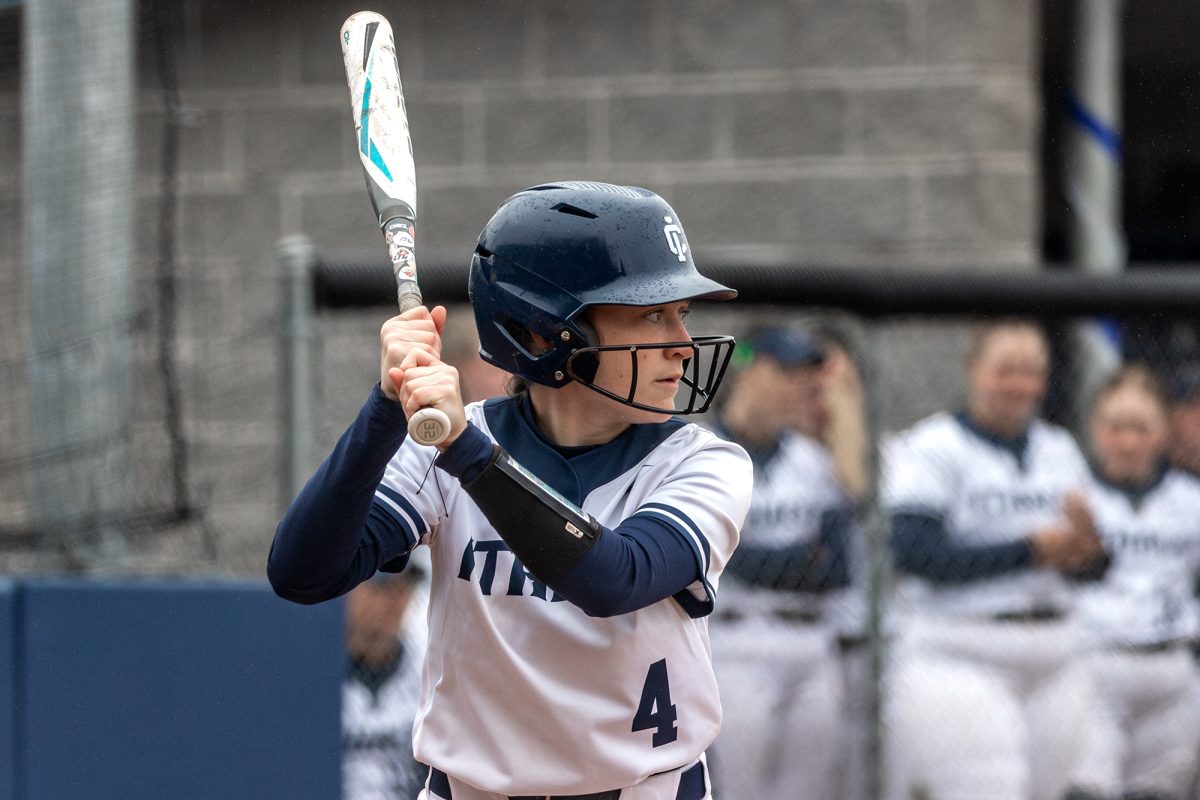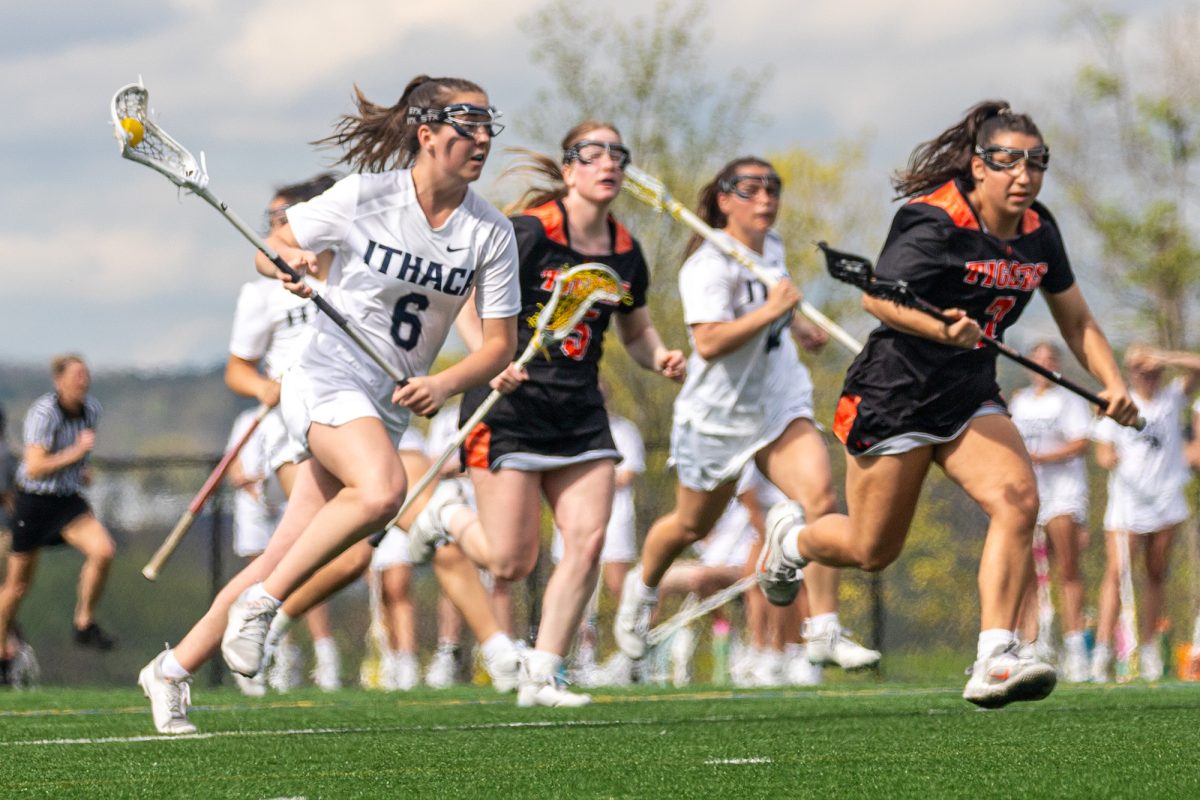Senior offensive lineman Ben Kumph dedicates many hours to football and training, so his body is always in top shape. After grueling football practices that can last into the night, he heads to the dining hall to refuel, only to find little a small variety of healthy options.
When practice is held on the turf field instead of the practice fields, it gets out at 8 p.m. By this time of night, the only dining hall open is Terrace Dining Hall, which is open for Late Night. Jeff Scott, the director of dining services on campus, said the dining hall switches to comfort food at this time because that is what college students want. Scott also said that creating more Late Night offerings would generate more waste.
Kumph said he is not able to refuel his body with the foods he needs.
“It is tough getting out of practice hungry and only one dining hall is open and all that is left is a few cheeseburgers and half a salad bar,” Kumph said. “I think there should be more of a variety of protein and nourishment at all hours of the day.”
Kumph is not the only athlete who has had issues with Late Night meals from the dining halls. Junior rower Greta O’Hara will get back to campus as late as 7:30 p.m. from a regatta, or 7 p.m. if the team is coming back from practice. This leaves Late Night as their only dining option.
“Instead of nutritious options, we are left with themed meals that lack good recovery foods,” O’Hara said.
Campus Center Dining Hall is open from 7 a.m. to 7:30 p.m. Monday through Thursday, but only open until 6:30 p.m. on Friday and from 8:30 a.m. to 6:30 p.m. on Saturday and Sunday. Towers Dining Hall is open 7 a.m. to 7 p.m. Monday through Thursday, until 2 p.m. on Friday and not at all on the weekend. Terrace Dining Hall is open Monday to Friday from 11:30 a.m. to 2 p.m., and then again from 5 p.m. until midnight. At 8 p.m., Terrace Dining Hall makes the shift from dinner food to Late Night.
Each night for Late Night is a different theme. Monday includes pancakes, waffles, home fried potatoes, sausage links and scrambled eggs. Tuesday night is Taco Tuesday, which includes a taco bar. Wednesday offers a pasta, pizza and chicken patty sandwiches. Thursday is Southern Comfort Night and includes pulled pork, fried chicken, cole slaw and macaroni and cheese. Every night offers pizza and chicken patty sandwiches.
On Nov. 13th, Terrace Dining Hall provided a dinner of stuffed shells with house marinara, vegetable stir-fry, pizza, soups and a salad bar. As dinner begins to shift to late night at 8 p.m., the options become focused around breakfast foods, featuring waffles, home fries, scrambled eggs and banana pancakes.
The options for athletes that missed regular dinner hours become far less healthy as Late Night begins. One healthy meal served during dinner hours consists of vegetable stir-fry contains 80 calories, 5 grams of total fat, 0 milligrams of cholesterol, 280 milligrams of sodium and 2 grams of protein. In comparison, one serving of banana pancakes contains 210 calories, 6 grams of total fat, 5 grams of protein, 10 milligrams of cholesterol and 410 milligrams of sodium.
“They have healthy options, but they tend to be hard to come by, are in limited amounts and don’t taste too great,” O’Hare said. “Sodexo’s food, in general, contains high amounts of sodium, and I wouldn’t even go as far to say that it’s healthy, but rather students just have to try and pick the healthier option.”
Scott said he believes that the dining halls have the correct food that athletes should be eating and that it is up to the athlete to make the right choices.
“These options have always been available, but I think part of it is just helping or encouraging people to eat well,” he said. “If they’re training and working with a coach or dietician or nutritionist, then they probably have a pretty good sense as to what they should be doing. I think if you’re not informed, you can create some bad habits.”
Scott said he meets with student-athletes throughout the year to get their feedback on the dining halls.
“Last year, a number of students said our service hours on the weekend were obstructive to their practice schedules, so we adjusted them,” he said.
Instead of opening at 10:30 a.m. on Sundays, Campus Center Dining Hall now opens at 8:30 a.m. to help with athlete’s practice schedules.
The change did not help the women’s basketball team, which normally has practice around 7 p.m. on weekday nights and night games on Fridays. Freshman guard Megan Yawman finds that the dining halls close far too early, which eliminates her ability to maintain a healthy diet.
“There have been numerous times when we are returning from our 6 to 8 p.m. practice on a Friday night and there are no dining halls open,” Yawman said. “That becomes frustrating because we then have to go spend money on limited options in SubConnect or whatever we may or may not have in our room.”
Options for the vegan athletes on campus are even more limited. Junior rugby player Mark Hassett said that Late Night rarely provides vegan meals and that he is left to create his own dinner. Rugby practice usually gets out between 6 and 7 p.m.
“During regular dining hall hours, it is helpful when there are hot vegan options provided,” Hassett said. “However, when it comes to late night, the options disappear and vegans like myself are left to try and create our meals with the sides, such as bread and fruit.”
During Late Night on Nov. 15 and 16, there were only two vegan foods, marinara sauce and sauteed greens, between both nights. According to the Late Night menu, there have been times during late night where the only vegan option was marinara sauce.
“In some cases would could offer more vegan meals with simple sides and so forth,” Scott said. “So that’s something we’ll probably need to monitor from a preference standpoint because we’re feeding such a wide range of preference.”
Kumph said that his intake of certain foods help shape his play and how he performs on the field.
“If I don’t eat good meal, I won’t play to my best ability,” said Kumph. “Proper foods fuel your energy, and my energy will be low, making it much harder for me to play at a high level.”


